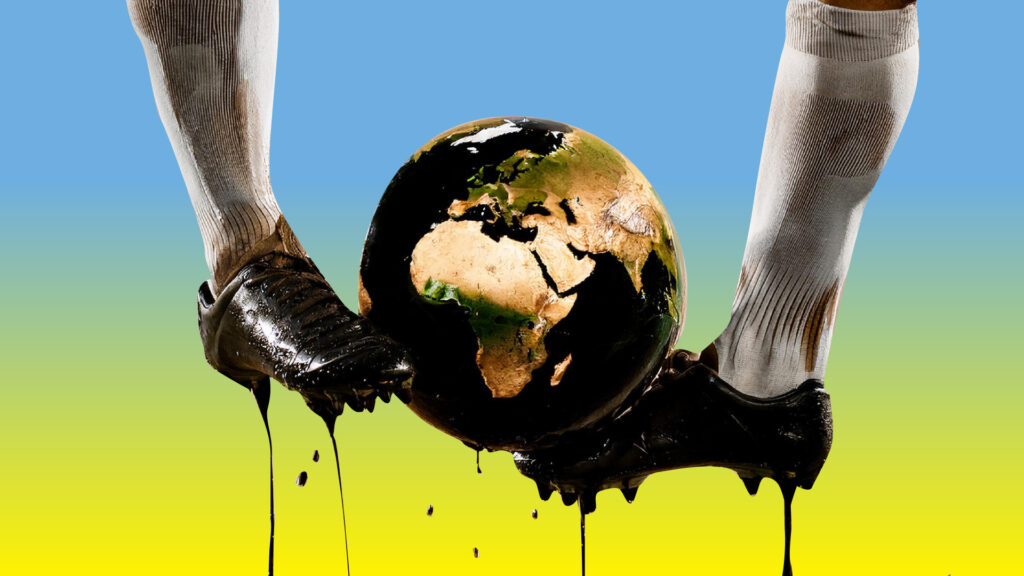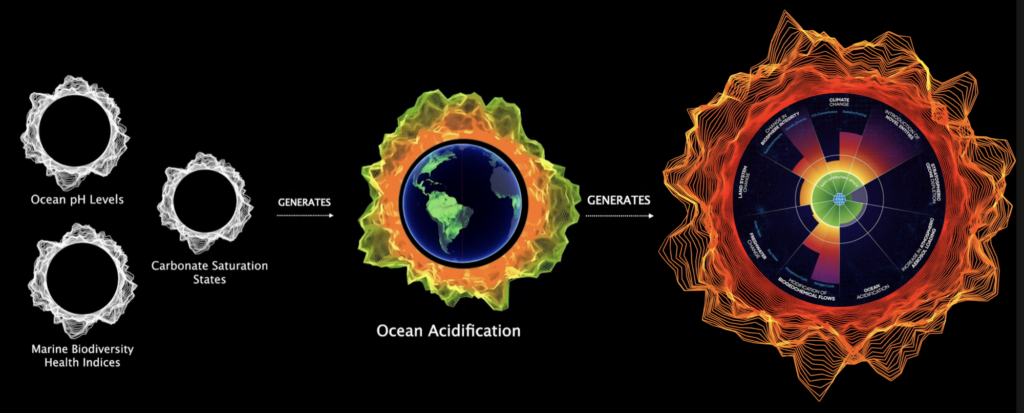In 1972, the Club of Rome published the world’s first advanced computer modelling of projected climate impacts. The Limits to Growth would become an iconic critique of unbridled economic growth on a finite planet, and a foundation for the global sustainability movement.
Yet 50 years later, its sequel — Earth for All — reckons with a host of lessons not learned. Released by the Club of Rome in 2022, the report is a sobering account of the radical socio—economic transformation now required to prevent ecological and societal collapse.
Humanity doesn’t lack the policies, technological innovations, or resources necessary to avert catastrophe and create an equitable world within planetary boundaries. Yet action to date has been disastrously inadequate.
Now, specialists in the interplay of inner and outer change have come together to ask, what’s stopping us? A new report complementary to Earth for All — and to all systems approaches — The System Within — advocates for transformation not only within our socio—economic frameworks but also in our deepest cognitive and cultural fabric.
Understandably, material concerns dominate the policy conversation around sustainability and systemic transformation. Yet at the root level, our crises are created and perpetuated by factors in our psychology and meaning—making.
From consumerist values to evolutionary impulses that skew our perceptions and political behaviours, these inner dynamics subtly dictate the course of our external world. It’s why Donella Meadows, the lead author of The Limits to Growth, saw this arena of “mindsets” as the “deepest leverage point for change.”
At the foundation of failing societal systems, there is often a particular worldview with origins in the European “Enlightenment”.
Rooted in the embrace of empiricism, reductionism and rationalism, this dominant view has fuelled modern scientific progress and delivered extraordinary material comfort to many. At the same time, it has fostered a mass culture of alienation and exploitation, ultimately setting civilisation on a trajectory for collapse.
Meanwhile its fundamental materialism has led to a widespread devaluation of inner life, and popular rationalism to a dangerously simplified understanding of human motivations, resistances, and potentials — with catastrophic consequences for systems that rely on a functioning account of human behaviour.
Subscribe to our newsletter
Stay up to date with DeSmog news and alerts
We may recoil at any idea of “intervention” in the personal sphere. However, humans possess extraordinary inner capacities, and their fuller realisation brings undeniable benefit. Indeed, in an era obsessed with material progress, humanity’s inner wealth remains grossly neglected. Furthermore, our inner worlds are routinely manipulated by commercial and political forces, shaping public opinion and consumer behaviours that directly feed into broader crises.
Historic wisdom traditions and modern scientific research agree that we are capable of understanding, nurturing, and transforming our inner landscapes in ways that promote the wellbeing of all life. A large and growing body of evidence supports methods for necessary inner development at individual, group and societal levels.
We now urgently require ways to integrate this understanding and cultivation of the inner into systems approaches.
The “elements of the inner” often missing from systems thinking can be understood in two broad categories. First, we risk forgetting the role of paradigms or systems of meaning in shaping societal structures and behaviour. Core cultural narratives about the world are typically experienced as qualities of reality itself – leading, for example, to blindness to the needs of complex living systems within individualist societies. Second, we require better awareness of the transient subjective states and enduring psychological traits – such as cognitive biases and threat responses — that drive behaviour and influence meaning—making at individual and collective levels, and the transformative capacities of heart and mind that can be cultivated to support resilience and collective action, and shift foundational attitudes over time.
What we require is not a shift away from emphasis on material solutions, but a holistic reimagining of systemic change strategies. A dual approach to shifting the visible, external structures of society and the invisible, internal landscapes of the human mind and heart. Prominent theories and practices are already evolving to integrate these inner dimensions with external systemic changes. Emerging models aim to develop capacities in leaders, support mindset shifts in teams and organisations, and foster comprehensive initiatives for individual, societal, and planetary flourishing.
Earth for All recommends five “extraordinary turnarounds’” in global policy approaches to achieve a liveable future.
In response, we advocate a sixth crucial shift: a widespread turn towards recognizing and incorporating the inner dimensions into all aspects of system thinking, policy — making, resource allocation, and strategies for change.
Without this turn, we risk continuing to miss solutions of necessary depth. Achieving it, however, would allow us to hope not only for adequate crisis response, but for a level of human flourishing we have hardly begun to imagine.
Subscribe to our newsletter
Stay up to date with DeSmog news and alerts







